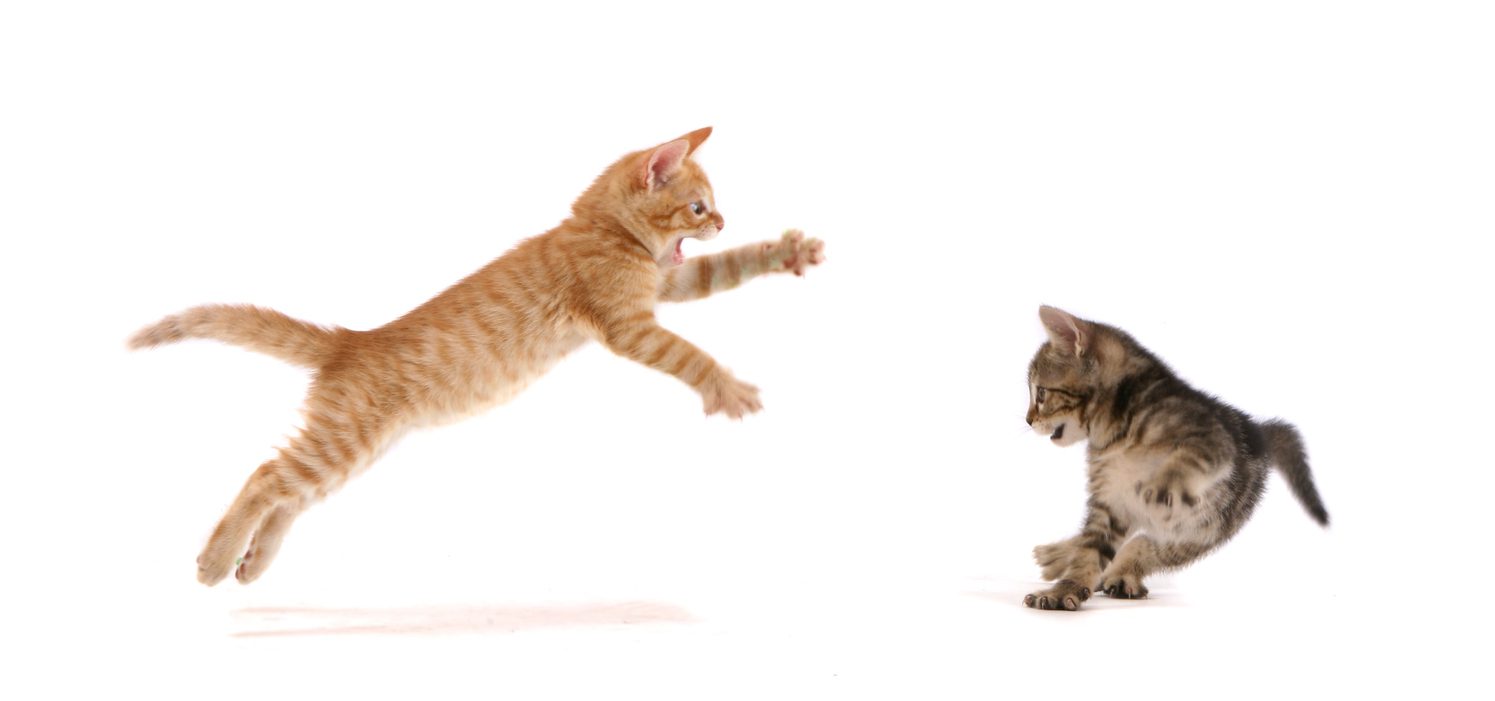How to tell if your cats are playing or fighting?
How to Tell if Your Cats Are Playing or Fighting
Cats are known for being playful, but it can sometimes be difficult to determine if they are actually playing or fighting. It’s critical to understand the difference between the two to ensure your cats’ safety and well-being. Below are some helpful tips to help you determine if your cats are having fun or need a time-out.
Body Language
Cats use body language to interact with one another. When cats are playing, their bodies are usually relaxed, they may roll around on the ground, and their movements are smooth. Cats may stare at each other intently during a fight because their bodies become tense and rigid. To intimidate the other cat, they might attempt to make themselves appear larger by puffing up their fur.
Vocalization
Cats interact with one another using a variety of vocalizations; you can often tell if they are playing or fighting based on these sounds. Cats may produce chirping or trilling noises when they are playing, which are cheerful noises indicating that they are having fun. However, when cats fight, they might hiss, growl, or yowl instead—clear signs that playtime is over and they may need to be separated.

Examine their ears
Many cats hold their ears forward, upright, or backward during a friendly play session. However, if you observe that they turn their ears back or position them against their head then they are most likely fighting.
Aggression level
Fighting usually involves a higher degree of aggression in one or both animals. In playful interactions, the cats may take turns chasing each other or rolling around. In a fight, one cat may be attempting to dominate or injure the other. Besides that, playful interactions tend to be shorter in duration, while fights can last longer and can escalate quickly.
Tail position
When cats are playing, their tails may be held high or twitching back and forth, which is a sign of excitement and playfulness. If their tails are positioned low to the ground, or lashing back and forth, this can be a clear sign of aggression and hostility.
What should I do if cats are fighting?
There are tactics you can employ to avoid harm and keep your cats peaceful if you think that they are fighting rather than playing. Here are a few tips to put an end to the fighting.
- Interrupt the behavior
If you notice your cats fighting, make a loud noise or clap your hands to interrupt the behavior. It may seem dramatic, but keeping a whistle or even an air horn in your home can be a good way to divert their focus and stop the situation from getting worse. - Separate the cats
If the cats continue to fight, separate them by putting them in different areas or by using a barrier like a baby gate. This can give them time to cool off and prevent injury. - Don’t punish them
Dealing with a catfight can be a terrifying and worrisome experience. Cats don’t respond to punishment the same way as dogs and trying to punish them is often more harmful than helpful. - Provide separate resources
Make sure your cats have their own sleeping quarters, food bowls, and litter boxes. This can help prevent rivalries and lessen the possibility of conflict over resources.
Introduction of a New Cat
One of the biggest mistakes cat owners make is bringing a new cat into their home without taking the personality of the present cat into account. It can take several days or longer for cats to get along, so first, be certain about your present cat’s behavior before taking a companion into consideration.
Conclusion
Being aware of the differences between playing and fighting can help you ensure your cats’ safety and well-being. You can contribute to preventing harm and preserving peace of mind between your feline friends by keeping an eye on their behavior, interrupting escalating behavior, and offering separate resources. Consider contacting a veterinary behaviorist or other expert for assistance if your cats have trouble getting along.
If your cat is showing signs of aggression in Silver Spring, MD, contact Apex Vets. Our veterinarians can look at the potential causes of your cat’s behavior and help to find solutions that bring them back to their happy and healthy selves. Contact us today.
